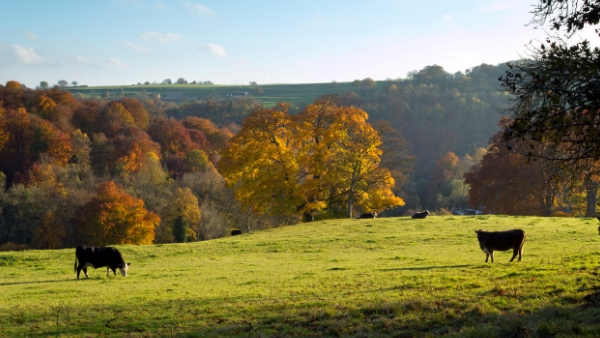Author
With the publishing of the Agriculture Bill last week the Government has taken a significant and most welcome step towards the creation of a new British Agriculture Policy. There is encouraging evidence in the Bill that some of the views of industry players have not only been heard, but have been translated through into actual measures. Inevitably, however, there are areas on which DEFRA’s silence so far is deafening, leaving farmers and agricultural professionals hoping that measures will appear in future legislation or guidance.
Furthermore, with reform going on simultaneously in two separate, but overlapping, areas of policy, namely farm subsidies and agricultural tenancies, there is a real danger that we are left with lacunas between the policies, especially as they appear to be being developed separately.
TRIG proposals
Only last November, the Tenancy Reform Industry Group (“TRIG”) agreed to the publishing of their proposals for reform of agricultural tenancies. Major objectives of these proposals, which included some very significant changes, were to improve the productivity of agricultural businesses, to encourage retirement and succession down to the next generation and to increase investment in improvements.
In contrast to this, the focus of the Agriculture Bill is principally on the transition from income payments to “public money for public goods”, with rewards for measures which protect the environment, reduce flooding, provide public access, increase animal welfare etc. In reality, however, if land is being taken out of production for flood relief or environmental protection, it inevitably means that farm land, which is not suitable for these purposes, will have to increase production, just to stand still in terms of productivity. It remains to be seen how these different objectives will be worked together, so that one does not thwart the other.
Definition of “Agriculture”
A further question which the Government will need to address is whether a change of focus from production through to the public goods should also result in a change in both planning policy and tenancy law. The definition of agriculture in both landlord and tenant (agricultural holdings and farm business tenancies) and in planning legislation is still very much production focussed. With the new objectives of the Agriculture Bill on public goods, this definition should be extended to embrace these wider uses. Without a change a tenant farmer could find himself in receipt of plenty of public money under the new environmental land management system, but also in breach of the terms of his tenancy and of planning legislation. If an amendment is not made, both the planning and tenancy law restrictions could frustrate access to the new environmental land management system. There are similar issues arising from the need to update the Rules of Good Husbandry which were drafted in 1947. Tenants who put land into environmental schemes will find little in the rules that will assist them in avoiding a Certificate of Bad Husbandry.
Individual or whole farm approach
Up until the last CAP reform most environmental scheme agreements were granted in respect of individual parcels or farms. The current schemes introduced the possibility of farm businesses joining together to create environmental protection features across a whole landscape. For the sake of the environment one would hope that those wider landscape measures would continue to be encouraged. However there are obvious risks which accompany such arrangements. How can land owners be sure that their neighbours will continue to support a scheme, especially if a farm changes hands? Losing subsidies or facing penalties for breaches of landscape measures if a neighbour drops out of a landscape scheme could cause very real financial difficulties for a farm business. Obviously lawyers can always draft to provide a level of protection, but resorting to the law to enforce such arrangements is not how any farmer would choose to spend his time and energy.
De-linking
In relation to the transition period and throughout the Agriculture Bill and accompanying documents there are references to direct payments being “de-linked” from the land. The delegated power memorandum states that this “will remove the requirement to farm the land in order to receive the payments as they are phased out during the agricultural transition”. The Bill also includes power for the payment of lump sums in lieu of annual payments for a number of years of the transition period. Obviously some of these measures are time-limited and aimed at encouraging retirement, however they do overall appear to endorse the general theme of a move away from production.
For over thirty years the issue of the ownership of rights to subsidies has caused trouble between landlords and tenants and complications on farm transactions. So the prospect of direct payments being “de-linked”, one-off lump sums being paid out and the obligation to farm being removed will ring alarm bells on tenanted holdings all over the country. In addition, as with previous allocations of new quotas or entitlements, all the issues of preserving the rights to any lump-sum or transitional payments will arise on any farm sale or business restructuring that occurs between now and the end of the transition period in 2028.
Furthermore, it remains to be seen who will have the right to public money under the new environmental land management system: land-owners, occupants or those managing the environmental feature or scheme?
Data
In response to demands from producers to sort out supply chain problems, the Agriculture Bill contains powers for DEFRA to collect and share data from those within or closely connected to the agricultural food supply chain. Four months on from the GDPR we all know what a minefield data protection has become, so DEFRA will need to consider carefully how to exercise these powers. Who will own and have access to the data? How will it be used and stored? We will have to wait and see whether DEFRA can achieve the balance it intends – in favour of the producers – rather than it simply being data which will be sourced by government and used for other purposes, such as environmental breaches. Will this simply be more red tape without a clear benefit to first hand producers?
Supply contracts
In relation to food supply contracts, the Bill reserves powers to impose obligations on those buying from producers, which are intended to balance the negotiating power between the parties. The focus appears to be on the imposition of written agreements containing standard terms, however DEFRA will have to implement these powers carefully, as there is a risk that this approach could in fact distort the market and push up prices.
There is also power for DEFRA to intervene where there are exceptional market conditions. This will no doubt be watched with interest by the dairy industry. The fact that DEFRA might intervene to “prop up the market” needs to be considered in terms of milk supply contracts.
Conclusion
With different rules for England, Wales, Scotland and Northern Ireland, let alone the EU, there is little hope of any kind of level playing field between agricultural producers within the UK. Certainly for the short term, EU producers will continue to receive direct payments, so UK farmers are going to have to ensure their businesses are as lean and efficient as possible, if they are to compete both at home and overseas.
The theme of public money for public goods has been discussed for many months, if not years, however the publishing of the Agriculture Bill marks a major development in this approach, which looks set to continue. That coupled with indications that the TRIG reforms are also intended to be taken forward mean that now would be a good time for farmers and land owners to look now at their business structures (whether active farming, contract farming, tenancies or other models) and consider afresh whether that structure gives them the flexibility to keep pace with these major reforms.
For more information on this topic, please contact Viv Williams.



